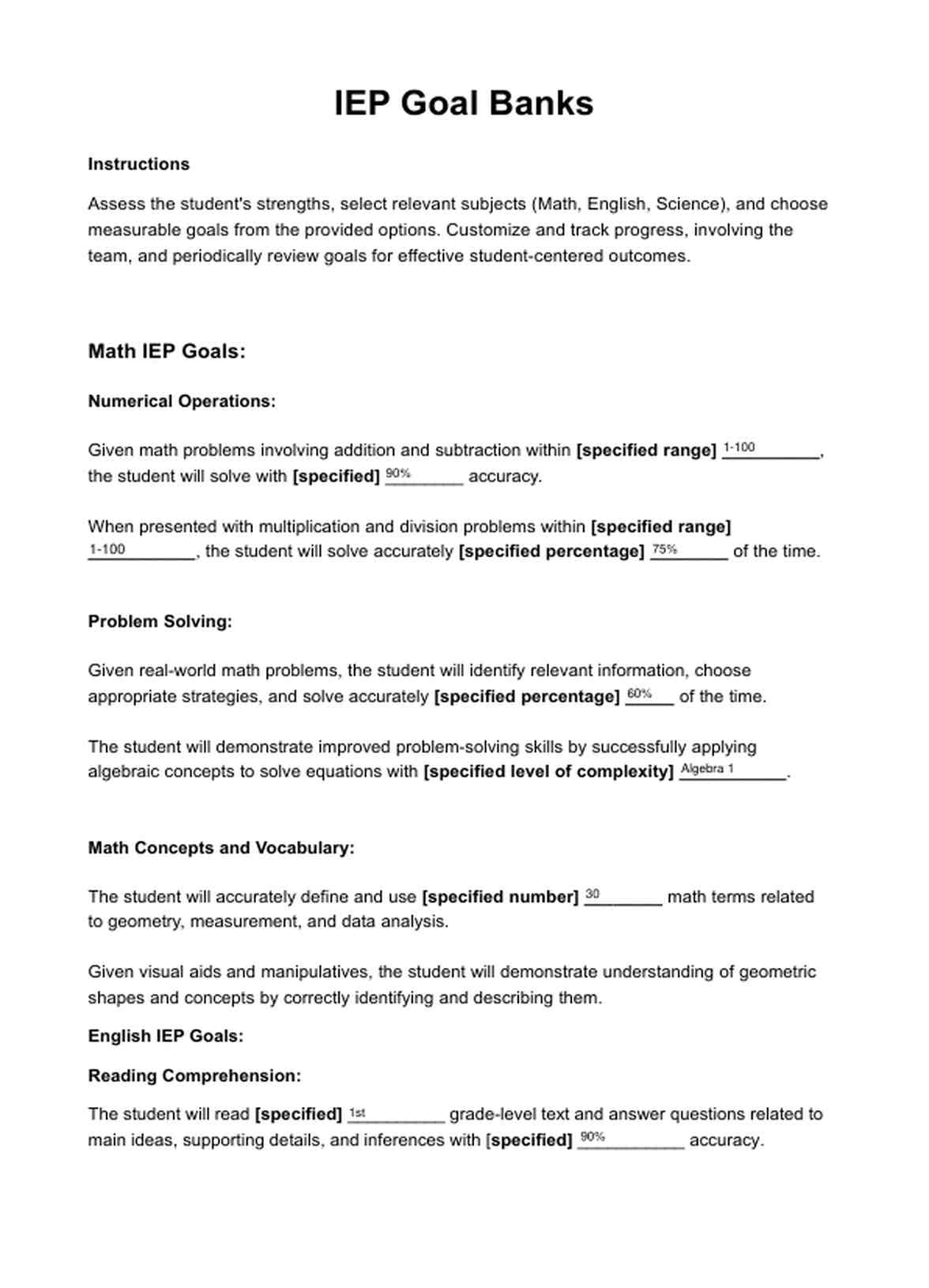As students progress through high school, it is important for educators to set specific goals to help them succeed academically. For 10th graders with Individualized Education Programs (IEPs), reading goals play a crucial role in their overall development and academic achievement. These goals are tailored to each student’s needs and abilities, aiming to improve their reading skills and comprehension.
IEP reading goals for 10th graders may focus on various aspects of reading, such as fluency, vocabulary expansion, comprehension, and critical thinking. By setting specific and measurable objectives, educators can track students’ progress and provide targeted support to help them reach their full potential in reading.
One common 10th grade IEP reading goal is to improve reading fluency. This may involve increasing the student’s reading speed and accuracy, as well as developing their ability to read with expression and intonation. By practicing reading aloud and using tools such as timed readings, educators can help students enhance their fluency skills over time.
Another important reading goal for 10th graders with IEPs is to expand their vocabulary. This can be achieved through various strategies, such as regular vocabulary exercises, reading diverse texts, and using context clues to infer the meaning of unfamiliar words. By building a strong vocabulary, students can improve their overall reading comprehension and communication skills.
Additionally, 10th grade IEP reading goals may focus on improving reading comprehension and critical thinking skills. Educators can support students in developing strategies to analyze and interpret texts, make connections between different ideas, and draw conclusions based on evidence from the text. These skills are essential for academic success and lifelong learning.
In conclusion, setting specific reading goals for 10th graders with IEPs is essential for their academic growth and success. By targeting areas such as fluency, vocabulary, comprehension, and critical thinking, educators can provide the necessary support to help students improve their reading skills and achieve their full potential. With personalized and measurable goals in place, students can make progress in their reading abilities and become more confident and proficient readers.
